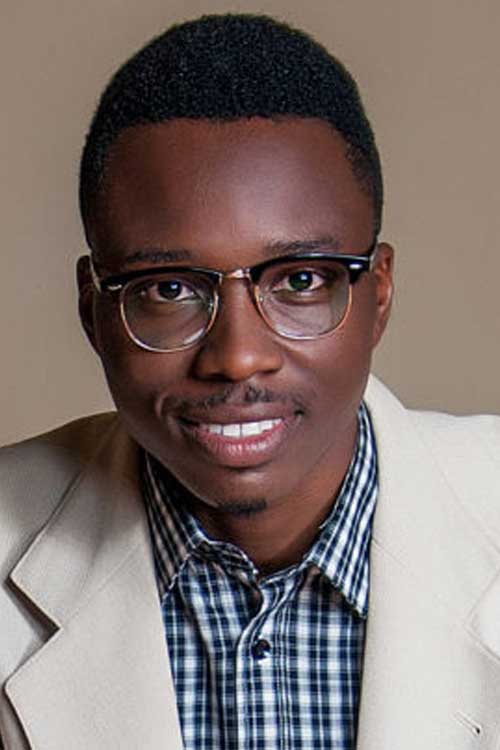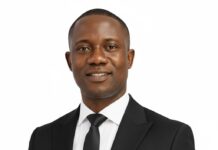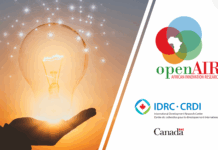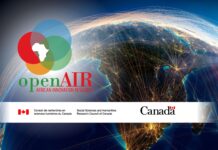Open AIR’s New and Emerging Researchers Group (NERG) embodies Open AIR’s commitment to the mentorship and development of students and early career researchers. Open AIR provides opportunities for new and emerging researchers to work alongside Open AIR academics and practitioners, share insights and experiences with their peers, and travel to our various hubs in order to broaden their horizons and help them build up relevant networks. In this series of blog posts, we introduce some of Open AIR’s NERG members and briefly delve into their research interests, as well as the projects they are working on.
In today’s post, we talk to Clarence S. Lakpini at our Cape Town hub.
Clarence S. Lakpini

Tell us a little about yourself?
My name is Clarence S. Lakpini, and I am a research assistant at Open AIR’s South African hub, the University of Cape Town’s Intellectual Property Unit. I obtained my LLB degree from Ahmadu Bello University, in my home country – Nigeria – and recently completed my LLM at the University of Cape Town. My thesis is titled: “An Examination of South Africa’s Efforts at Patent System Reform: TRIPS Flexibilities Fully Appropriated for Public Health Needs?” It analyses the extent to which South Africa is taking advantage of public health related TRIPS Flexibilities in its amendment process. It found that the country is on the right track in its quest to reform its patent laws and bring them in line with international best practices. It remains to be seen whether the reform will be successfully passed into law, but it is commendable that South Africa has taken positive steps in this process by coming up with and Intellectual Property Policy.
What projects are you currently working on?
With other research assistants, I recently concluded the data collection for a project on Artificial Intelligence (AI) and gender, in preparation for the WeRobot conference in April. We are looking at how AI innovations and the laws about them are taking shape and being communicated by and to people across Africa. This data collection project has provided me with new insights on research methodologies outside the legal profession. I am gaining an understanding of how different fields approach their research and I believe this experience will stand me in good stead for my future legal research.
Also, I assisted a group of researchers, including Sean Flynn (American University), Eve Gray (University of Cape Town), and Denise Nicholson (WITS), with research on an article about copyright and publishing in South Africa. The copyright revision process in South Africa has been completed, and the Copyright Amendment Bill currently awaits the assent of the President. Throughout the reform process, there has been some resistance to reform from the publishing industry in South Africa. The article considers the state of the publishing industry as it relates to access to knowledge in South Africa. It provides a rich historical basis upon which we can understand the huge sway the big publishers have over the textbooks market in South Africa, in order to help contextualize their current opposition to the reform of the Copyright Act.
How has being a NERG impacted you?
Working with Dr. Tobias Schonwetter has been a delight and I have learnt so much from him in my time with the IP-Unit. I have also had the privilege of working with other researchers in the network such as Dr. Bram Van Wiele, Dr. Desmond Oriakhogba, and Douglas Gichuki. In addition, it has been a great experience to collaborate with and learn from the other NERG members at our hub: Lenon Rwizi (LLM student) and Bontle Monnya (final year LLB student). One outstanding example is the seminar on Traditional Knowledge held at the end of September 2019, in celebration of South Africa’s Heritage Day. It was a research assistant-led initiative, with Bontle running point on the organization of the event. The fact that we were given the freedom to plan the event – with Tobias, Nan Warner, and Phyllis Webb on hand to help us whenever we encountered challenges – enabled us to build up our capabilities for teamwork and working under pressure. Personally, I have gained invaluable knowledge in the short time that I have been a NERG and this has facilitated my academic pursuits in several respects.
What are your plans for the future?
In the near future, I intend to do doctoral studies looking at the relationship between Intellectual Property and the Fourth Industrial Revolution (4IR), from a developing country perspective. I certainly need to streamline the research area but, at the moment, this constitutes my broad area of interest. I am excited about the research that Open AIR is conducting on AI and gender, as it helps to give me pointers on which direction to take my research when I get to the proposal stage. I am also really looking forward to collaborating with Open AIR’s other hub in South Africa, the University of Johannesburg, whose team is focusing on 4IR and Africa’s informal economy.










